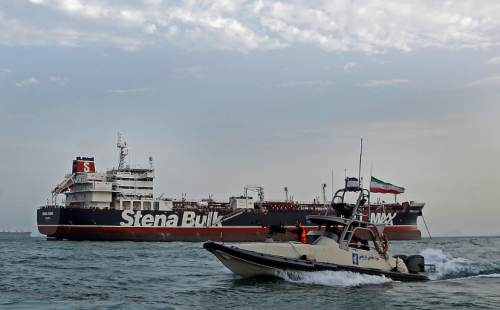
France, Italy and Denmark gave initial support for a British plan for a European-led naval mission to ensure safe shipping through the Strait of Hormuz, three senior EU diplomats said on Tuesday after Iran’s seizure of a British-flagged tanker.
The backing at a meeting of EU envoys in Brussels contrasts sharply with the lukewarm response shown by European allies to a similar American call first voiced at NATO in late June, when countries feared they could make U.S.-Iranian tensions worse.
“Britain’s request, rather than Washington’s, makes it easier for Europeans to rally round this,” one senior EU diplomat said. “Freedom of navigation is essential, this is separate from the U.S. campaign of maximum pressure on Iran.”
Britain tested the idea to senior EU diplomats at a meeting in Brussels, saying it would not involve the European Union, NATO or the United States directly, the diplomats said. It was the first formal European meeting since British foreign minister Jeremy Hunt outlined the plans to parliament on Monday.
British foreign ministry and defense officials have also discussed a possible mission, which would likely involve not just ships but aircraft too, directly with their Italian, Spanish, French and German counterparts.
A senior German diplomat in Berlin said Foreign Minister Heiko Maas was in close contact with his British and French counterparts, Hunt and Jean-Yves Le Drian, to “contribute to the security” of the Gulf including on maritime security.
The Netherlands is also assessing the British proposal.
They aim to have further meetings with Madrid and Stockholm, the diplomats said, while at the EU meeting in Brussels, Sweden, Poland and Germany also showed interest.
The mission to protect vital Middle East oil shipping lanes could be run by a joint Franco-British command, one of the envoys said.
Any mission would still need parliamentary approval in some EU countries, diplomats said.
